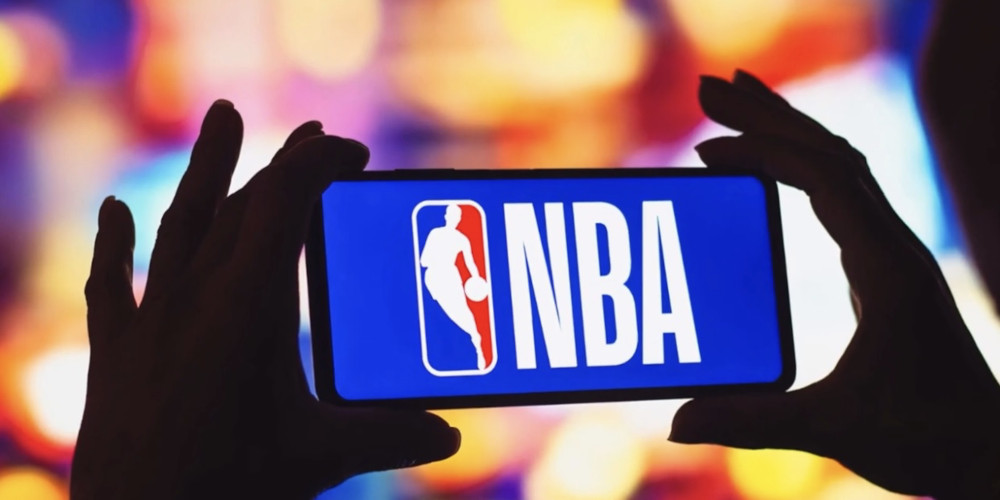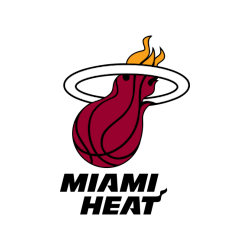NBA Finalizes Richest Media Rights Package in Sports History
The NBA is pursuing US$76 billion in rights deals with ESPN, NBC, and Amazon. The North American men’s basketball league is about to raise annual dues to an average of US$7 billion, a more than 2.5-fold increase.

The NBA (National Basketball Association) is nearing completion of agreements with ESPN, NBC, and Amazon for television rights for a total of US$76 billion over 11 years.
Disney, the owner of ESPN, is reportedly planning to give the league an average of US$2.6 billion a year, which is more than any other potential media partner. ESPN will be able to broadcast games on its direct-to-consumer (DTC) streaming service, which is anticipated to start in 2025, but the amount is a significant increase from its present US$1.5 billion arrangement.
For 100 games a season, NBC is supposed to pay US$2.5 billion, of which half will only be available on its Peacock streaming service. As long as there’s no schedule issue with its Sunday night NFL coverage, NBC would air contests on its linear channels on Tuesdays and Sundays.
Amazon will pay US$1.8 billion annually for NBA play-in and in-season tournaments, as well as regular-season and post-season games. It will have a portion of the conference championship games, which will be distributed among the three teams according to a rotation schedule.
The agreements will also include the rights to WNBA (Women’s National Basketball Association) telecasts, and they’d go into effect starting with the 2025–26 season. According to reports, an official announcement is still a few weeks away, and team owners still need to approve the contracts.
Despite appearing to be the front-runners in finalizing their deals, Warner Bros. Discovery (WBD), the league’s current broadcast partner, still has the option to match a competing package. This contract provision is unclear, nevertheless. And the league may still decide to create a unique package for WBD.
NBA’s Viewership Down on the NFL
For broadcasters, live sports are still very beneficial, especially in this day and age when cord-cutting is still a serious concern and streaming is still a losing business. Despite having fewer viewers than the NFL and earning less money overall, the NBA is nevertheless a desirable product due to its large number of games and younger fan base.
Even so, the enormous costs continue to cause anxiety, as NBC executives reportedly disagree about the advantages of obtaining NBA games. However, the broadcaster has prioritized sports for its Peacock streaming service in an effort to draw users and turn a profit; in the past, it has aired NFL playoff games and Premier League football matches.
Amazon views the NBA as a means of attracting younger fans as subscribers and customers within its larger ecosystem, while ESPN views maintaining the NBA rights as a top priority as it continues to get ready to launch a DTC service. WBD is thus left in the dark. The business could lose out on significant income since cable distributors might be less inclined to pay hefty prices for TNT. Furthermore, Charles Barkley, a well-known basketball analyst on the network, has been increasingly vocal about WBD’s poor negotiation skills.
As time runs out, WBD has already demonstrated that it’s willing to purchase additional sports content by working with ESPN to sublicense the College Football Playoff (CFP). It’s open to investigating the possibility of purchasing CBS from Paramount, which would grant it ownership of properties including the NFL, the NCAA Champions League, and the whole NCAA Basketball March Madness tournament.
Top 10 Sports Media Rights Deals in History of Sports
All in all, the deal the NBA signed for media rights is the biggest ever in sports history. The league used to hold the second-biggest deal before this one. Let’s check out the top 10 sports media rights deals in sports thus far.
# 10 AFL ($2bn)
The men’s Australian Football League (AFL) inked a five-year TV agreement that broke previous records, becoming the largest in Australian television history, with an annual budget of more than $320 million.
# 9 La Liga ($2.86bn)
The Spanish men’s football league, La Liga, has reached an agreement for €2.65 billion ($2.86 billion). With MEDIAPRO and Movistar sharing rights, it’s a three-year domestic TV rights agreement. The annual value of the arrangement comes to €883 million. Due to a shared TV rights agreement, Sky Sports occasionally televises Spanish football matches.
# 8 Serie A ($3.03bn)
With Sky Italia & MEDIAPRO, the Italian men’s football Serie A agreed to a three-year domestic television contract (2015–2018) for €943 million annually. Aside from the Bundesliga and the English Premier League, this broadcasting agreement is among the largest in football history. In 2019, a new contract worth an estimated €1.3 billion per season was inked.
# 7 NHL ($5.2bn)
In 2013, the National Hockey League (NHL) and Canadian network Sportsnet reached a 12-year, $5.2 billion pact. The annual contract they have to broadcast the North American hockey league was reportedly valued at more than $450 million.
# 6 Bundesliga ($5.23bn)
A €4.64 billion agreement was reached between the German men’s football Bundesliga and Sky Deutschland and Eurosport. In a four-year agreement, each split the Bundesliga’s broadcasting rights between the 2017–18 and 2020–2021 seasons. The total payment came to €1.159 billion annually (Sky owned 80% of the rights to broadcast).
# 5 Premier League ($5.56bn)
Although the English men’s football Premier League may appear to lag far behind the two most popular American sports, it has significantly boosted its overall spending in order to obtain rights in recent years. The Premier League’s three-year domestic contract with Sky Sports and BT Group, worth £5.1 billion ($7 billion), ran from 2016 to 2019. Sky spent £4.2 billion and BT £960 million in total. This came to an annual average of £1.8 billion. It’s one of the largest TV rights agreements in football history. On February 13, 2018, the contract was extended and reduced to £4.46 billion.
# 4 MLB ($12.4bn)
MLB (Major League Baseball) and three US networks—Fox, TBS, and ESPN—signed a nine-year contract that ran from 2014 to 2022. The combined payments from three networks totaled £1.3 billion annually. Baseball is still very much alive, even though it’s only the third most popular sport in the US after the NFL and NBA.
# 3 NBA ($24bn)
When it comes to the largest TV rights agreements, the NBA used to come in second before it broke its own record. ESPN and TNT agreed to pay $24 billion to extend their NBA contract for nine years, from 2016 to 2025. This amounted to combined payments from ESPN ($1.4 billion) and TNT ($1.2 billion) of $2.6 billion annually.
# 2 NFL ($39.6bn)
In terms of TV rights possession, the NFL (National Football League) was the most lucrative sport up to this point. The NFL and the four US networks—CBS, Fox, NBC, and ESPN—signed a nine-year contract that ran from 2014 to 2022. The total compensation from the four networks was $4.5 billion annually.
# 1 NBA ($76bn)
For a long time, there has been no doubt that the NBA league is at the top of the basketball pyramid, and sports pyramid in general, and that no competition outside it can be measured on any basis. Yet, what the strongest basketball league in the world has just prepared is beyond all reach.
The current season is coming to an end as the Boston Celtics lead the final series against the Dallas Mavericks by 1-0. The Celtics’ significant win in Game 1 alters the title odds on NBA betting sites. In Game 1 of the NBA Finals, Boston was at full strength against the Mavs thanks to the return of big man Kristaps Porziņģis. And those who wagered on “The Green” were richly rewarded for their big night.
What Sports Media Rights Give to Those Who Make Partnerships?
The ability to participate in the spectacle and thrill of major sporting events for billions of people worldwide has been made possible by technological advancements in communications, which have changed broadcast sports coverage. Sport and television, but also other media, are based on copyright and related rights, especially those pertaining to broadcasting organizations. Massive sums of money are paid by media and television companies for the exclusive right to live broadcast major athletic events.
The rights of broadcasters:
Protecting their expensive assets in sports television
Acknowledging and honoring broadcasting companies’ innovative endeavors
Acknowledging and honoring their contributions to the spread of cultural and intellectual knowledge.
The sale of media and broadcasting rights is currently the largest source of income for the majority of sports organizations. These proceeds are used to finance major events, renovate stadiums, and support grassroots sports development. The money that broadcasters receive as royalties from selling other media outlets their exclusive footage allows them to invest in the expensive organizational and technical infrastructure needed to bring sporting events to millions of fans worldwide.
More tips on Basketball

Olympiacos B.C.

Panathinaikos AKTOR Athens

Olympiacos B.C.

Real Madrid Baloncesto

Auburn Tigers

Michigan Wolverines

Real Madrid Baloncesto

Barcelona Bàsquet

Cleveland Cavaliers
















